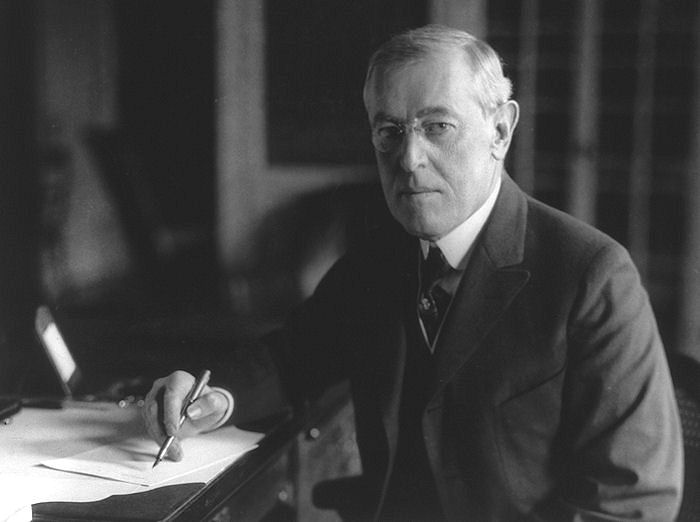Fourteen Points
Wilson feel responsible for coming up with a plan for peace after the war is over and believes there are several points that must be addressed. First he explained that the US was getting involved in the Great War only to help other nations and bring peace. He really truly wanted the world to be in harmony with each other. To do this he came up with fourteen points which he believed would serve as guidelines to a better world. First all of the fighting needed to stop and the world needed to be at peace. His plan addressed issues with Russia, freedom of waterways, and trading rights. Maybe most important, his plan contained the League of Nations, a global united force of countries. In the end this part of the plan failed as the United States would not even agree to be a part of it. Later the US would be leaders of the UN. But the fourteen points were a huge step towards the US being established as a peacekeeper. Wilson really had the best interests in mind and wanted his plans to really help free the world from fighting.




